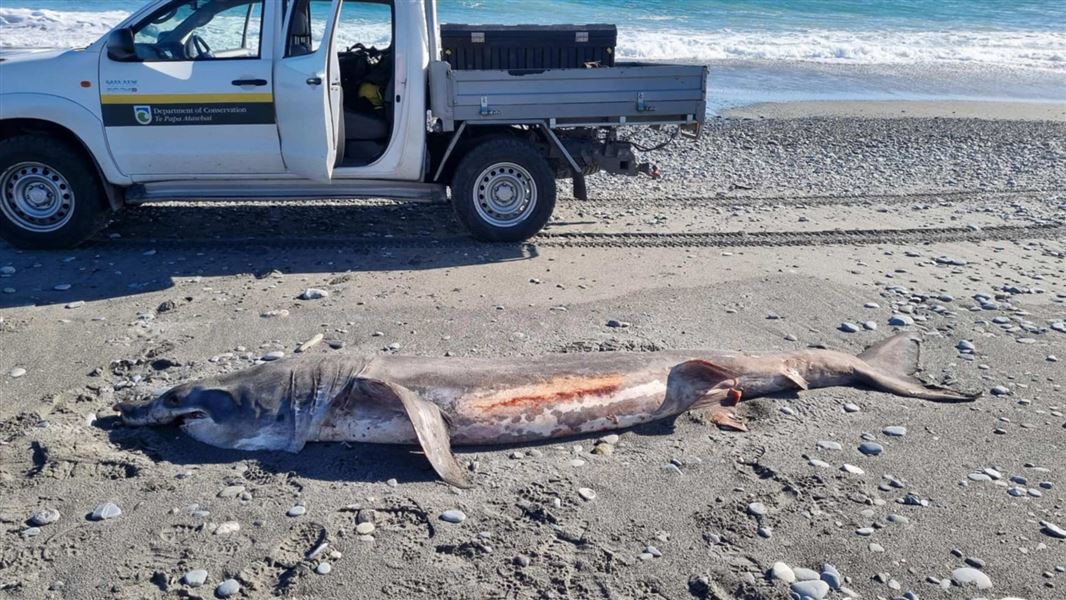Date: 14 August 2024
The body of a rare basking shark has been found at Gillespies Beach in South Westland and has been removed from the beach by DOC for preservation and further study at Auckland War Memorial Museum.
Basking sharks are the second largest fish in the world, with estimated reported sizes of over 12 metres. They are filter feeders, with a diet of zooplankton.
The South Westland basking shark measures in at 3.45 m. Despite its size the specimen found on Gillespies Beach is a fairly small juvenile. Records of juveniles and pregnant females are exceptionally rare globally meaning very little is known of the species reproductive biology.
Dr Karen Middlemiss, Marine Science Advisor at DOC says, “DOC is very pleased to provide the specimen to Auckland Museum for necropsy and to have the support of iwi (Ngāti Māhaki) to do so. This is a hugely valuable opportunity for us to assist with filling global knowledge gaps for this elusive species.”
Clinton Duffy, Curator of Marine Biology at Auckland War Memorial Museum says that up until the early 2000’s schools of adult basking sharks, sometimes containing hundreds of adults were regularly seen around South Island during spring and summer.
“The abrupt disappearance of these large inshore schools has caused concern for the species’ status in New Zealand and more generally, because New Zealand was considered the hotspot for the species in the Southern Hemisphere.”
“Researchers are hoping the specimen will shed some light on the species early life. The snouts of new-born basking sharks are greatly elongated and have a groove running along the underside of them to the mouth. As they grow the snout becomes more normal in appearance. Shark biologists have yet to establish what function if any the unusual morphology (shape) of the snout plays in the life and development of the basking sharks. Most juvenile sharks are miniature versions of the adults. It’s just one of the many mysteries associated with this species,” says Clinton.
Basking sharks are a protected species under the Wildlife Act and members of the public are encouraged to report sightings to 0800 DOC HOT (0800 362 468) or sharks@doc.govt.nz.
Background information
Basking sharks are considered globally Endangered by the IUCN Red List and Threatened-Nationally Vulnerable in New Zealand waters.
Basking sharks are protected under the Wildlife Act 1953. This means it is illegal to hunt, kill or harm basking sharks within New Zealand’s Territorial Sea and Exclusive Economic Zone (200 nm limit around New Zealand).
Any offence under this Act is liable to a fine of up to $250,000 and six months imprisonment. Basking sharks are also protected from fishing by New Zealand vessels operating on the High Seas under the Fisheries Act 1996.
